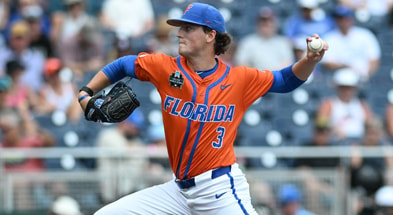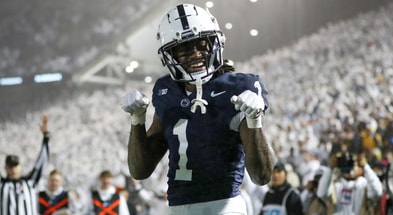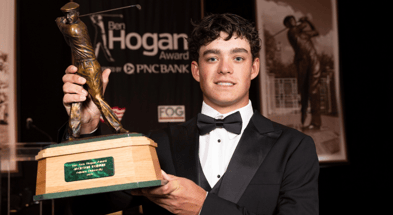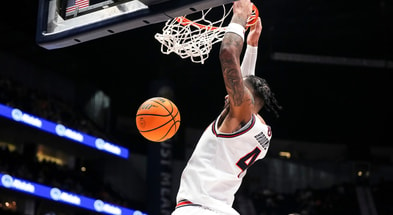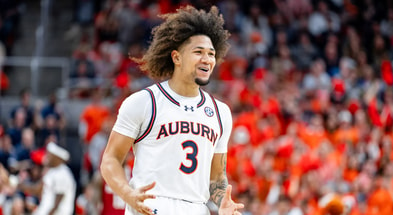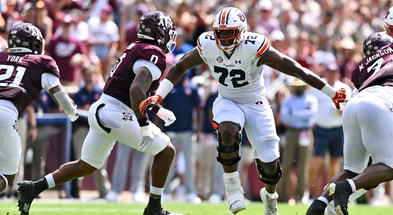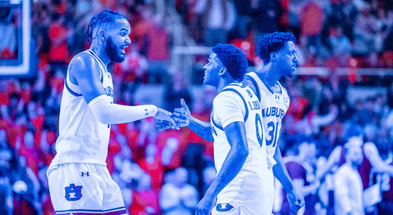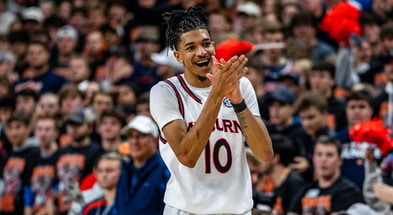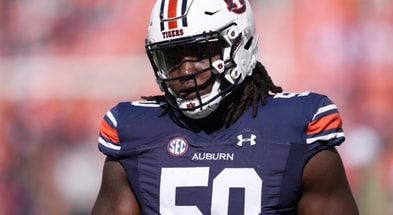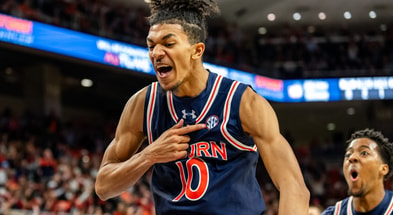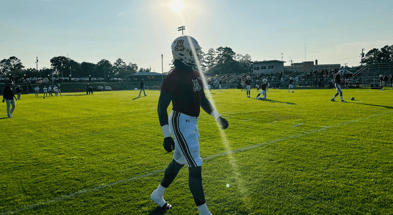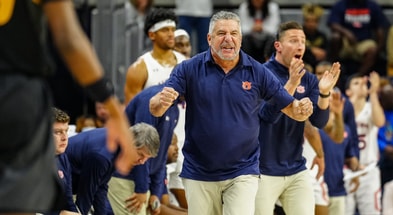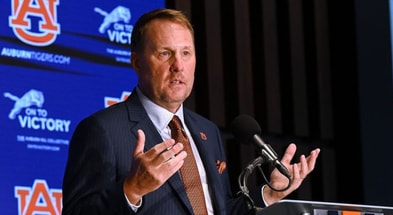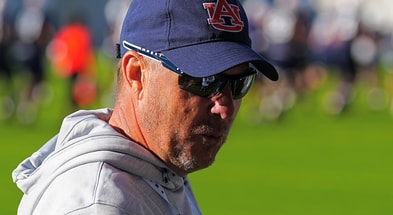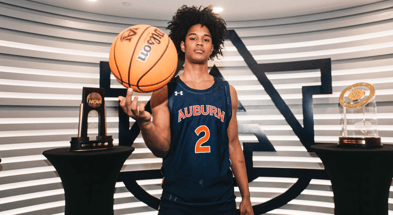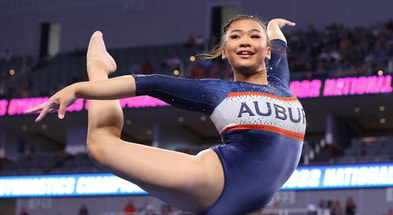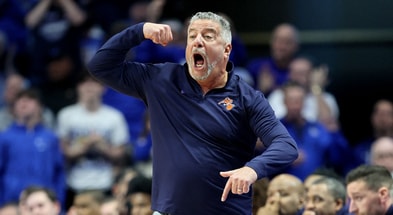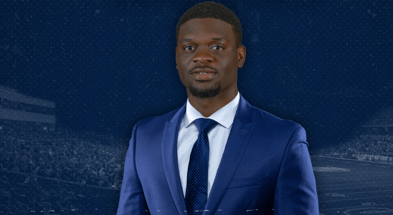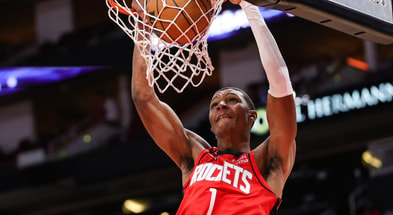Q&A with Auburn Deputy AD for External Affairs Rhett Hobart
AUBURN — Auburn Live recently sat down with Rhett Hobart, new Deputy AD of External Affairs for athletics, about his new position at Auburn.
Hobart followed new Director of Athletics John Cohen to Auburn from Mississippi State in January and hit the ground running. Hobart graduated from Mississippi State and spent years cultivating his career there, so moving to Auburn wasn’t an easy choice, but Hobart certainly believes it was the right choice.
SPECIAL $10 FOR 4 MONTHS OF ACCESS ENDS TODAY! JOIN AUBURN LIVE AND TAKE ADVANTAGE OF THIS GREAT DEAL
Hobart’s job centers around three main areas: strategic communications, fan experience and creative, and marketing + revenue generation. The Q&A dives into Hobart’s job responsibilities, his plans to elevate Auburn’s marketing efforts, improve game day experiences and more.
RELATED: LOOKING AT AUBURN’S HOOPS RESUME AS POSTSEASON ARRIVES
Quickly, here’s how Hobart’s job is broken down.
- Strategic communications: includes sports information and media relations
- Fan experience and creative: includes War Eagle Productions (network broadcasts, in-venue productions), War Eagle Creative (creative video, graphic design, photography, etc.), and fan experience and community relations (promoting events, creating giveaways, running in-game experience)
- Marketing and revenue generation: includes ticket operations, ticket retention, outbound sales, third-party revenue like Auburn Sports Properties, Revel XP (formerly Tailgate Guys), and marketing strategy (social, digital marketing, ,website management, etc.)
Let’s dive into an interesting look at the branding and marketing side of Auburn athletics.
What’s your philosophy?
Hobart: “I philosophically believe that there’s a lot of merit to placing units together that creates intentional collaboration because of how they are structured. In the past, all those units reported to this position directly.”
How has the game day experience changed over the last few years, especially post Covid?
Hobart: “It’s no secret that the way our fans have interacted with us has changed a lot, even in the post-Covid world. I really believe that, and I think there’s data to support this, that there are fans that have never missed a game or had been to every game for years and Covid changed things across the country for everybody. The biggest battle we face collectively is watching on TV can be really nice. You get a 50-yard line seat, free concessions, free parking, there’s a lot of merit to that.
“But it also doesn’t rival what you experience in the venue. What we have to focus on, and what I’ve talked to our staff about, is our philosophy going forward is about creating preeminent experiences. We have to do something that makes you want to be inside Jordan-Hare, inside Neville Arena, want to be inside Plainsman Park, but TV controls a lot these days. We have to control what we can control and make sure that when we create an opportunity for our doors and gates to be opened, that fans will want to be a part of it because they get an experience they can’t get anywhere else.
“All of it is connected. In today’s world of college athletics, the fan experience we provide where ten years ago it was all about what happens inside, it’s not that way anymore. It’s about what happens every single day, what happens on social media, how we present ourselves on TV.”
Do all branding and marketing decisions run through you?
Hobart: “Part of why we’ve gone though some re-organization — I’m a believer in efficiency. I like to move fast and keep things moving. I oversee a lot of areas, I never want to be the hold up of progress. It’s about putting a system in place to create efficiencies and empower people to make decisions to keep things moving forward. I don’t want a fear of failure in how we approach things. If you’re afraid to try new things, you’re never going to innovate.”
What are the most important elements of your job?
Hobart: “I would say first and foremost, our biggest responsibility, I would say macro vision, is experience. That impacts everything else you do. If you have a poor experience, then you aren’t going to sell tickets. If the experience in and around the venue is poor, which I don’t think we have here, then you’re going to have a hard time selling tickets. Part of that is trying to stay ahead of trends, continue to elevate experiences, it’s first and foremost. It’s not just about the fans, it’s also the student-athlete experience, the students, the recruits, and it also goes beyond that. If I’m looking at this collectively, anything with game day experience is 1A, and 1B is the rest of the year and how we’re interacting. In the creative space, there’s so many ways to approach it. Short form, long form, all-access, and our creative teams are really good.
Hobart: “The underlying piece of all of it is revenue. It funds everything we can do. To create the best game day experience, it’s not cheap, so we have to sell tickets, but it’s cyclical. You’ve got to create awareness, drive awareness, drive sales for the event, then when people are there, people have to want to come back. You can’t have one without the other. Revenue is the underlying piece that makes the whole thing move. It’s experience being one, and revenue being two.”
What successful ideas can you bring over from Mississippi State?
Hobart: “One of the things we just changed that we’re still rolling out is five or ten years ago, you saw departments structured, like there’s a marketing department and they did game production, music, PA, wrote the marketing plans for how we’re going to giveaway promotions, social media, email marketing, digital, billboards, all those things. I’m a strong believer that those days have passed us by. That’s really two jobs now.
Hobart: “We’ve broken that department up. We’re now going to have one that is called ‘fan experience’ and one that is called ‘marketing and digital strategy’ that hopefully will help us think more efficiently and help in our approach. When you try to do both at one time, you aren’t getting the best at either. We split that department in half. So it’s growth for us. There is a need to have a full-time social staff, and we have that, but we’re going to grow.”
What are your thoughts on the game day experience, specifically the parts of the day before the events start?
Hobart: “Auburn is a great job. The production, the in-game production is some of the best from War Eagle Production. We’re going to try and keep pushing that forward. Where we’re going to continue to focus is the out-of-game experience. We’re looking at everything that happens before the game starts. What are ways we can keep growing what we do outside the stadium to make your game day experience better? I don’t know what that is yet, but again, what we have to do in this industry now for people to want to be on campus goes beyond what happens two hours before the gates open. We have to make sure entire game day experience from the time you drive on campus to the time you leave is the best it can be to make sure you want to be here.”
What were your thoughts on touring Jordan-Hare Stadium recently? What were you looking for?
Hobart: “For me, I’m looking for ways to take spaces and areas of the stadium that are underutilized and make the more utilized. Does that mean more experiential opportunities? More premium experiences? Elevating how something looks?”
Are there any immediate changes to game day experiences coming?
Hobart: “One thing we’ve been discussing right now is utilizing live video better inside the venues at baseball and softball, which we don’t have right now. We’ve invested in some software to roll out in the next few weeks at baseball and softball, where you can watch some great hit, great catch, and play it back on the video board. We have food trucks going forward beyond right field at baseball going forward. It’s just about adding little things that make it better over time.”
Was it an easy decision to move to Auburn?
Hobart: “It wasn’t easy. I went to Mississippi State, worked there for eight years, then went to Wake Forest for a couple of years and loved my time there. I came back to Mississippi State in May to oversee all external. I started in May and John (Cohen) took this job at the end of October.I remember when he took the job like, ‘oh, wow.’ I wasn’t even fully unpacked. I just moved into a house in August. Even when we had serious conversations about this when that time came, it was challenging for me. I loved Mississippi State, I had hired a lot of people there, so I struggled with it for awhile. But I kept coming back to it’s a great opportunity, great university, ton of opportunity here. The more I thought about it, I wanted to be here. I told him yes in early January and started January 16.”
What do you think about Auburn Twitter and in particular, does social media play a part in learning fan habits or receiving feedback?
Hobart: “It’s an opportunity worth exploring. I consider myself fairly active from a Twitter and social media standpoint. It’s cool to see the passion everybody has. I try to interact with fans at a high level. I want fans to know that if they see something or have an idea, hit me on Twitter. I enjoy that kind of thing. I’m happy to find ways to help.”
